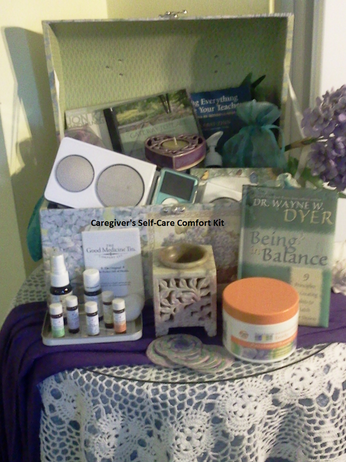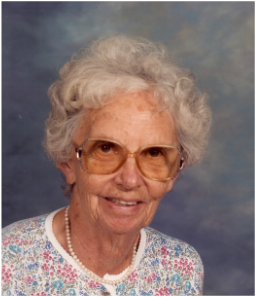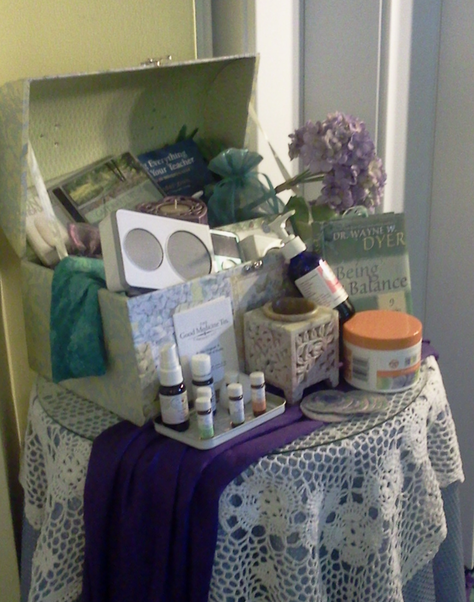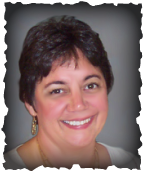An ounce of prevention is worth a pound of cure. Hello all you fabulous caregivers! I have been taking a bit of a break from writing the blog for a variety of reasons. But, I didn't even post this year on World Alzheimer's Day (September 21st), for the first time since I created the blog 5 years ago. Why, you ask? Because I just couldn't make myself put forth the staggeringly scary statistics about how often someone is diagnosed or about the impacts to a caregiver's life when AD is diagnosed -- again. It felt so overwhelmingly negative that I simply couldn't do it. Now, don't get me wrong. There's a lot of positive research happening, some of which I've been writing about since 2012, but it is now receiving mainstream media attention. For example, both music and meditation have been getting lots of attention, with the Veterans Administration now offering mindfulness meditation to veterans with post-traumatic stress disorder. There are more documentaries, more information flowing, more assistance to caregivers -- all that is truly a wonderful change. But, I felt like a voice crying in the wilderness when I wrote about the one thing that daughters caring for AD parents consider perhaps the most distressing of all when they see their loved one deteriorate before their eyes: will I also have this disease? It's a natural and unavoidable question when we see first hand the ravages of the disease. Until now, the widely promoted information is that Alzheimer's has no cure, and there's nothing much we can even do to slow it down. Grim, right? However, I know there are things we can do to prevent it (check out the rest of this website for that info) and finally, here is some validation that it can also be reversed. Yes, I said reversed. I discovered a series that is airing online right now, for free. It's called Awakening from Alzheimer's and offers video interviews with a dozen experts in various medical and research fields on all kinds of topics related to prevention and reversal of AD through often simple things that most of us can easily do to improve our health, cognition, and well being. In fact, this series has a huge arsenal of tools and some starling new information to empower us to do exactly that. The subtitle, "Where Alzheimer's meets hope" expresses it perfectly. Hope. We all need hope. This information will serve both you and your loved one with AD. Nothing to lose, as it's free, and everything to gain. Check it out. The series is on Day 4 now, so jump on getting registered. I wish I'd had even a small bit of this information during my time as caregiver. But, I'm sure happy to have discovered it now. Even though it's too late to help my mother, I believe it can help millions. Please share it. Hope and empowerment are precious. 3/21/2013 Caregiver's Self-Care Comfort Kit"You give but little when you give of your possessions. It is when you give of yourself that you truly give." ~Kahlil Gibran  Caregiver's Self-Care Comfort Kit Caregivers are, by their very definition giving people. They do give of themselves, sometimes for many years, faithfully supporting their care-receiver. It turns out that most caregiving roles are more a marathon than a short sprint, so one has to be prepared with the strength and stamina to continue. Quite often caregivers find themselves battling their own chronic stress, burnout, depression, health problems, relationship challenges, and other negatives to quality of life. It is, therefore, of the utmost importance to find ways to reduce the stress, relax, disengage for a time of respite and renewal. I've spoken of this many times in the past year, even giving recommendations to create a Caregiver Comfort Drawer for those emergencies when you need a little extra TLC. However, in the previous posts, I didn't include a photo of the kinds of things I was recommending, and a photo is, as the saying goes, worth a thousand words. So, today, I am giving you a glimpse into my own self-care comfort kit, a photo tour, and a list of the types of things I included that worked for me. I realized, especially toward the end of my mother's life, that this comfort kit needed to be mobile, rather than in a drawer at home. That way, my visits to Mom could include pampering for us both. I hope you will find the suggestions helpful and that some of them will resonate with you. Please do find something to help you deal with the stress levels. It is not being self-indulgent to do so -- it may save your sanity, and perhaps even your very life! Here is a list of items my comfort kit contains, by category: Aromatherapy: Oil Lady Aromatherapy Good Medicine Tin, which includes 5 essential oils, pure organic jojoba to blend them, a lavender mist bottle, and instructions on how to use them in various ways, such as in a diffuser, in the shower/bath, in self-massage, hand massage, etc. These are simply wonderful in all kinds of situations, to calm & balance oneself and reduce stress. I give them my highest recommendation. They also sell a Sweet Sleep Kit with the lavender mist, and lavender oil, along with natural tranquilizer oil, which is great for those nights when sleep eludes you or your care-receiver. I also have a diffuser in my kit. Mine uses tea light candles, so must be attended at all times, but there are electric ones as well which can be set to low temperatures. In addition to the above, I also included Stimulator Oil and Balancer Oil blends from Oil Lady. I love them for myself and my Mom. Aura Cacia makes two great body creams that have become favorites -- Lavender and Patchouli/Orange are now my standards for moisturizing and make a pleasant bedtime ritual. And, I use some of their bath products when I want a special, relaxing treat. For more aromatherapy suggestions, visit my page: Aromatherapy Books & Music: For relaxation, I use a guided meditation called Gateway to Peace by Max Highstein. It is soothing music and words which takes you on a 12 minute journey of renewal. Great stress reducer! I also use Jon Kabat-Zinn's CD, Mindfulness for Beginners to learn mindfulness meditation. And, as a companion to that, the book Everything is Your Teacher, based on Kabat-Zinn's book, Full Catastrophe Living, offers great insights. I love Wayne Dyer's book Being in Balance which is quite helpful, and can be read in small increments if time is in short supply. There are many other books and recordings, and I find it most functional to put the music and meditations on an iPod for easy use and storage of a bunch of favorites. I bought an iHome speaker dock for it, which is rechargeable and has its own case for easy portability. That way, others, such as your care-receiver, can listen to, if you wish. I cannot emphasize to you enough the amazing power that music has to affect your mood and sense of well-being. It is a wonderful tool, for both you and your loved one, so please do make use of it in the ways you find most healing and helpful. Other items: A small journal/Gratitude journal Stationary and envelopes Colored pens, pencils, sketch pad Healthy snacks and not-so-healthy emergency chocolate (dark, of course, so I don't feel quite so guilty) You can get very creative with your comfort kit -- after all it is for YOU, so whatever speaks to your heart and soothes your soul is perfectly valid. I also advise using humor wherever possible and in whatever form you can find. It really will help keep life on the lighter side to have some laughter) 4/28/2012 To Sleep, perchance to dream...Today's topic is sleep. Or, in the case of most caregivers, lack thereof. This was one of the very biggest issues for me, in trying to manage as a caregiver -- there was generally never enough sleep, and what there was tended to be poor quality, oft-interrupted, causing me to generally awaken feeling tired. Not a good way to start the day! I found that I slept very lightly, in order to hear when I was needed if my mother awakened and got out of bed, which happened quite often. I imagine other caregivers struggle with this same problem. One trick I learned was to place her walker right up next to the bed so that she couldn't get up without using it. As soon as I heard it's particular noise, I was immediately alert and up. There are a few tried and true remedies for sleep -- I think I've tried them all. Well, that's not true, actually. I never used any prescription sleep aid because I was afraid it would knock me out to the point I wouldn't awaken if I needed to do so, and because they are incredibly addictive. Neither of those seemed like a good idea. So, here are the old remedies, time honored and tested through the centuries. I figure the reason they are still around is that they work. Note: You can use these on yourself, and, in most cases, they are safe for your loved one as well, but I'm not giving medical advice -- you should, of course, check with your loved one's doctor to make sure there is nothing to contraindicate them. 1) Warm milk at bedtime -- this one really does work. You can add a drop of vanilla extract for flavoring, or a little bit of honey or cinnamon. Just a small amount can soothe and adds L-tryptophan which makes you sleepy. 2) Lavender aromatherapy -- this is a nice, easy bedtime ritual that can aid sleep. A drop of pure lavender essential oil on a cotton ball tucked into your pillow case, or a spritz of lavender mist on your pillow can bring on sweet dreams. Orange oil also works for this purpose. 3) Melatonin -- There are a number of products on the market with melatonin. The one I prefer is Schiff's Melatonin Ultra which provides 3 mg of melatonin, theanine, GABA vitamin B6 & calcium. I really like that it doesn't leave me with a sleep "hangover", and I still am sleeping lightly enough to wake if needed. That's a real plus for a caregiver. Again, check with your doctor (or your loved one's) to make sure this won't interfere with other medications. 4) Chamomile tea - There are many different combinations or blends of chamomile tea available from your grocery store or health food store. My fave is Sleepy Time. But, I think they all work pretty well. 5) If noise is a problem, and because you need to be available you can't wear earplugs, try a white noise generator, or, even better, a HEPA filter air purifier. The noise generator makes a whooshing sound, sort of like ocean waves -- some have multiple selections for the sounds. The HEPA filter -- I recommend Austin Air if you are looking for the best (I've had mine for 15 years, running 24/7 and never a problem)-- has a dual function in that it creates some white noise while at the same time giving you clean, pure air. If you want more information about good sleep habits, you can read Deepak Chopra's book, Restful Sleep, for a whole host of ideas to make sleep more rejuvenating and easier to experience. I found many of his ideas helpful and still practice some of them. There you have my helpful hints for a better night's sleep, while still being there for your loved one -- sweet dreams! |
About Karen
Karen is a compassionate, enthusiastic student of life, who cared for her mother for 17 years. She brings her insights, compassion, experience and desire to share knowledge and healing to this ongoing conversation with others on the caregiving path. If you are caring for a parent, spouse, friend or other loved one this site offers sanity-saving tips, open-hearted self-care ideas, and an open forum for discussion, connection and sharing resources for the journey. Archives
October 2021
CategoriesAll Acceptance Aging Together Alan Cohen Alive Inside Movie Alzheimer's Alzheimer's Prevention A Mind Of Your Own Anxiety Aromatherapy Audio Therapy For PTSD Austin Air Hepa Filter Autism Back Care Video Beginner's Mind Being Present Blessing For Caregivers Books Brain Insulin Butterfly Story Calm Calm.com App Care For Veterans Caregiver Advocate Caregiver Coalition Caregiver Comfort Kit Caregiver Guilt Caregiver Retreat Caregiver's Serenity Prayer Caregiver Stress Caregiver Support Care Giving Caregiving Vulnerability Care In Hospital Caterpillar Into Butterflies Chamomile Tea Cindy Laverty Comedian Computers & Exercise Crisis Dan Cohen Deepak Chopra Delirium Depression Diabetes Disaster Preparedness Distractions Dr. Dharma Singh Khalsa Dr. Oliver Sacks Eden Alternative Eldershire Elizabeth Dole Foundation Emergency Planning Emergency Preparation Emerson End Of Caregiving Enough Already Escapism Essential Oils Food Safety Forgiveness Funny Stories Gaiam.com Gail Sheehy Gift Of Alzheimer Gift Of Healing Presence GMO Food Green House Project Gregory Fricchione Md Grief Guilt Happy Light Healing Holding Hands Home As Sanctuary Hope Hospital Caregiving Hospital Stay Humor Inspirational Reading Ipods For Nursing Homes Isolation Jacksonville James E. Miller John Denver Johns Hopkins Study John T. McFadden Jon Kabat-Zinn Kelly Brogan Kirtan Kriya Meditation Lao Tzu Laugh Laughter Lavender Loneliness Loss Of Purpose Love Love In The Nursing Home Maya Angelou Mayo Clinic Mayo Clinic Alzheimer's Blog MD Meditation Meditation Garden Melatonin Memory Memory Cafe Military Caregiver Mindfulness Meditation Mr. Bean Music Music & Alzheimer Music And Memory Neurological Research Noise Pollution Operation Family Caregiver Opportunity Overnight Respite Care Pandemic Passages In Caregiving Patience Paul Coelho Peace Post-traumatic Stress Disorder Power Of Love Prayer PTSD Quality Of Sleep Radical Contentment Relaxation Releasing Problems Renewal Research Respite Rewind Rodney Yee Rosalynn Carter Rosalynn Carter Institute For Caregiving Rowan Atkinson Sanctuary Sanity Self Care Serenity Silence Sleep Slowing Time Solutions Soothing Music Stress Stress Relief Sun Sunshine Support For Caregivers Tai Chi Thanksgiving The Care Company The Kiss Time Traumatic Brain Injury Travel With Alzheimer's Person Treat VA Caregivers Valentine's Day Verilux Veteran Farms Veterans Veteran Suicide Vitamin D Wayne W. Dyer Wellness Wendell Berry White Noise William H. Thomas Worry Yoga Yoga Video |



